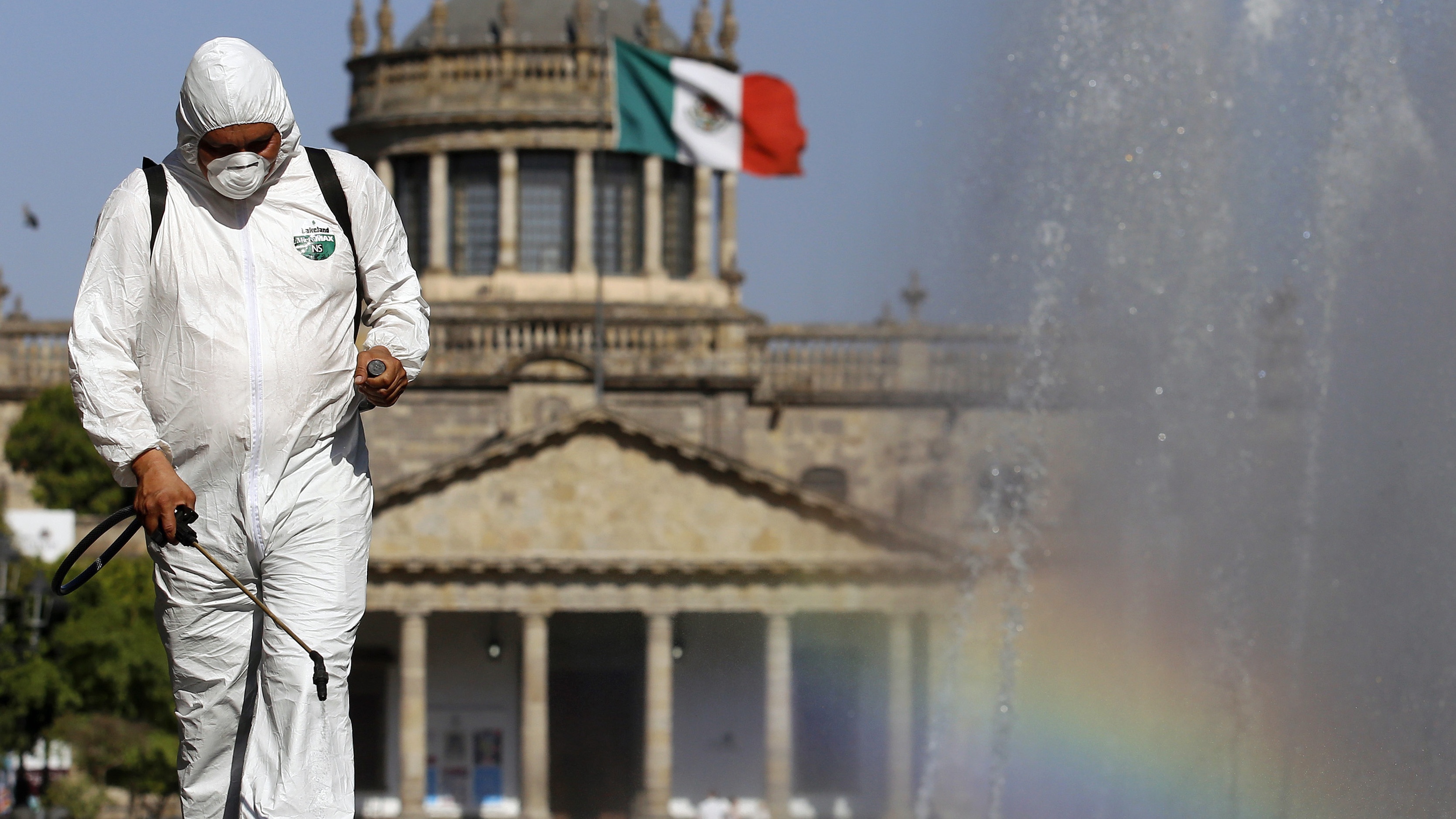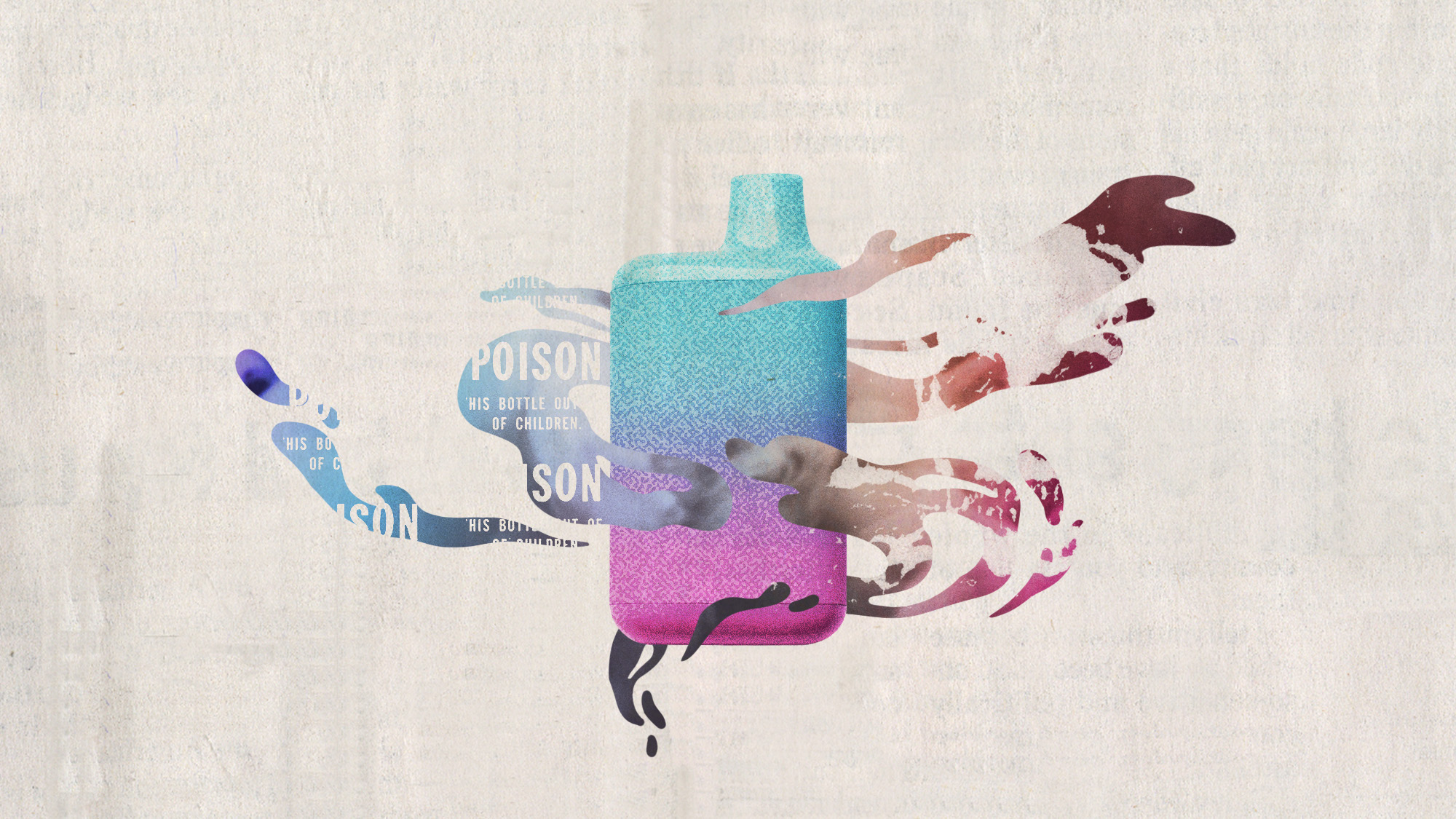‘A little flu’: how two Latin American giants sleepwalked into coronavirus carnage
Brazilian and Mexican leaders continue to downplay crisis even as death tolls hits record highs

A free daily email with the biggest news stories of the day – and the best features from TheWeek.com
You are now subscribed
Your newsletter sign-up was successful
Brazil and Mexico have both recorded their highest daily coronavirus death tolls to date, as the outbreak sweeps across Latin America.
In Brazil, where President Jair Bolsonaro has dismissed Covid-19 as “a little flu”, a tally of 881 deaths in 24 hours was reported on Tuesday night, says The Guardian.
The country has recorded a total of more than 190,000 confirmed cases, but experts believe the real number is far higher.
The Week
Escape your echo chamber. Get the facts behind the news, plus analysis from multiple perspectives.

Sign up for The Week's Free Newsletters
From our morning news briefing to a weekly Good News Newsletter, get the best of The Week delivered directly to your inbox.
From our morning news briefing to a weekly Good News Newsletter, get the best of The Week delivered directly to your inbox.
“Brazil is only testing people who end up in the hospital,” said Domingo Alves of the University of Sao Paulo Medical School. “It’s hard to know what’s really happening based on the available data. We don’t have a real policy to manage the outbreak.”
Mexico also reported a record total of Covid-19 fatalities on Tuesday, at 353, as anger grew in both countries over the authorities’ response to the pandemic.
Pandemic politics
President Bolsonaro has “shrugged off the pandemic’s increasing death toll” and has failed to introduce a national lockdown even though Brazil is the worst-hit country on the continent, says The Guardian.
A free daily email with the biggest news stories of the day – and the best features from TheWeek.com
The far-right politician “has repeatedly downplayed the threat of the coronavirus and criticised governors and mayors for adopting strict restrictions to curb its spread”, adds the BBC.
Alexandre Telles, president of Brazil’s Sinmed doctors union, has accused Bolsonaro of being “totally irresponsible” in his handling of the outbreak. “It is a posture that disrespects life and the Brazilian population,” Telles said. “I don’t see the curve of the disease reducing without us enforcing social distancing measures.”
The Mexican government has also been accused of failing to take the crisis seriously. The authorities have given the go-ahead for construction, mining and car manufacturing work to resume on 18 May, and for some schools and businesses to reopen.
The lifting of the lockdown comes amid claims that officials “have tallied more than three times as many fatalities in the capital than the government publicly acknowledges”, reports The New York Times, which adds: “Mexico appears to be vastly underreporting suspected deaths from coronavirus.”
“It’s like we doctors are living in two different worlds,” Dr Giovanna Avila, who works at Mexico City’s Hospital de Especialidades Belisario Dominguez, told the newspaper.
“One is inside of the hospital with patients dying all the time. And the other is when we walk out onto the streets and see people walking around, clueless of what is going on and how bad the situation really is.”
Critics of the Mexican and Brazilian governments have pointed to the examples set by some other Latin American countries that have been more proactive in responding to the pandemic.
In Ecuador, the government has given emergency grants to families and has opened shelters to get homeless people off the streets, commandeering hotels to isolate the infected.
Panama recently ratcheted up social-distancing measures, while El Salvador has seen soldiers enforcing a strict lockdown.
Poverty
Experts say the coronavirus outbreak in Brazil was fuelled by wealthy people travelling in and out of the country.
“One of the most famous clusters was Rio’s Country Club, an ultra-exclusive enclave of privilege and power just three miles from Rocinha where at least 60 of the 850 members were infected,” reports The Guardian.
But it is the poor who are being hit hardest, as the virus spreads to the densely populated and poverty-stricken favelas.
Around 20% of Rio de Janeiro’s 6.7 million residents live in such areas. Wallace Pereira, a community leader in the city, says the region is facing a “public disaster”.
“People are getting sick and they have nowhere to go,” he warned. “The situation is getting worse because many people are going around saying: ‘This virus won’t get me’ – which is a fantasy.”
The outbreak is also expected to drastically increase Mexico’s overall poverty rate, which was around 42% pre-coronavirus. The economic fallout from the outbreak could “translate to at least 70 million Mexicans, 56% of the country, not earning enough to cover basic needs”, according to the London-based Thomas Reuters Foundation.
–––––––––––––––––––––––––––––––For a round-up of the most important stories from around the world - and a concise, refreshing and balanced take on the week’s news agenda - try The Week magazine. Start your trial subscription today –––––––––––––––––––––––––––––––
Medical facilities
In Mexico, many hospitals are already overwhelmed. “Doctors and nurses across the country have held public protests against the lack of protective gear, and several hospitals along the border have suffered outbreaks of the virus among medical personnel,” reports The New York Times.
“Officials have been scrambling to buy respirators, long after seeing the outbreaks grip China, Europe and the United States,” the paper adds.
In Brazil, medical facilities are also struggling to cope. “You can see that it’s moving towards the urban peripheries – gradually, but it’s getting there,” Paulo Lotufo, an epidemiologist at the University of Sao Paulo, told The Guardian.
-
 The Olympic timekeepers keeping the Games on track
The Olympic timekeepers keeping the Games on trackUnder the Radar Swiss watchmaking giant Omega has been at the finish line of every Olympic Games for nearly 100 years
-
 Will increasing tensions with Iran boil over into war?
Will increasing tensions with Iran boil over into war?Today’s Big Question President Donald Trump has recently been threatening the country
-
 Corruption: The spy sheikh and the president
Corruption: The spy sheikh and the presidentFeature Trump is at the center of another scandal
-
 Epstein files topple law CEO, roil UK government
Epstein files topple law CEO, roil UK governmentSpeed Read Peter Mandelson, Britain’s former ambassador to the US, is caught up in the scandal
-
 Mexico’s vape ban has led to a cartel-controlled black market
Mexico’s vape ban has led to a cartel-controlled black marketUnder the Radar Cartels have expanded their power over the sale of illicit tobacco
-
 Iran and US prepare to meet after skirmishes
Iran and US prepare to meet after skirmishesSpeed Read The incident comes amid heightened tensions in the Middle East
-
 Israel retrieves final hostage’s body from Gaza
Israel retrieves final hostage’s body from GazaSpeed Read The 24-year-old police officer was killed during the initial Hamas attack
-
 China’s Xi targets top general in growing purge
China’s Xi targets top general in growing purgeSpeed Read Zhang Youxia is being investigated over ‘grave violations’ of the law
-
 Panama and Canada are negotiating over a crucial copper mine
Panama and Canada are negotiating over a crucial copper mineIn the Spotlight Panama is set to make a final decision on the mine this summer
-
 Why Greenland’s natural resources are nearly impossible to mine
Why Greenland’s natural resources are nearly impossible to mineThe Explainer The country’s natural landscape makes the task extremely difficult
-
 Iran cuts internet as protests escalate
Iran cuts internet as protests escalateSpeed Reada Government buildings across the country have been set on fire